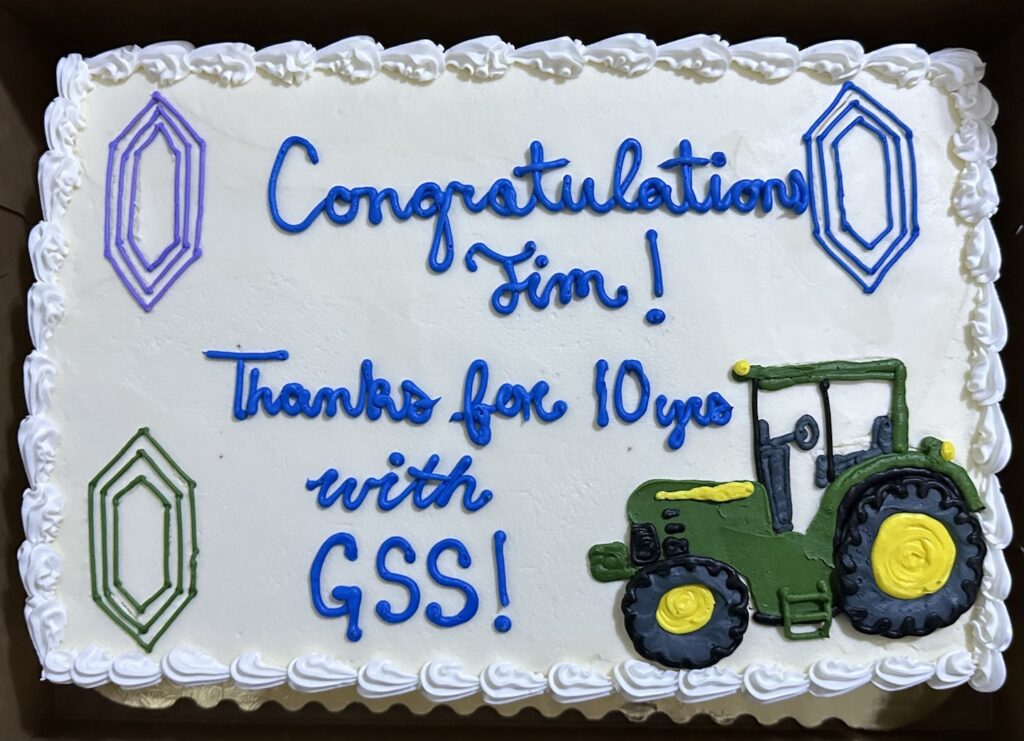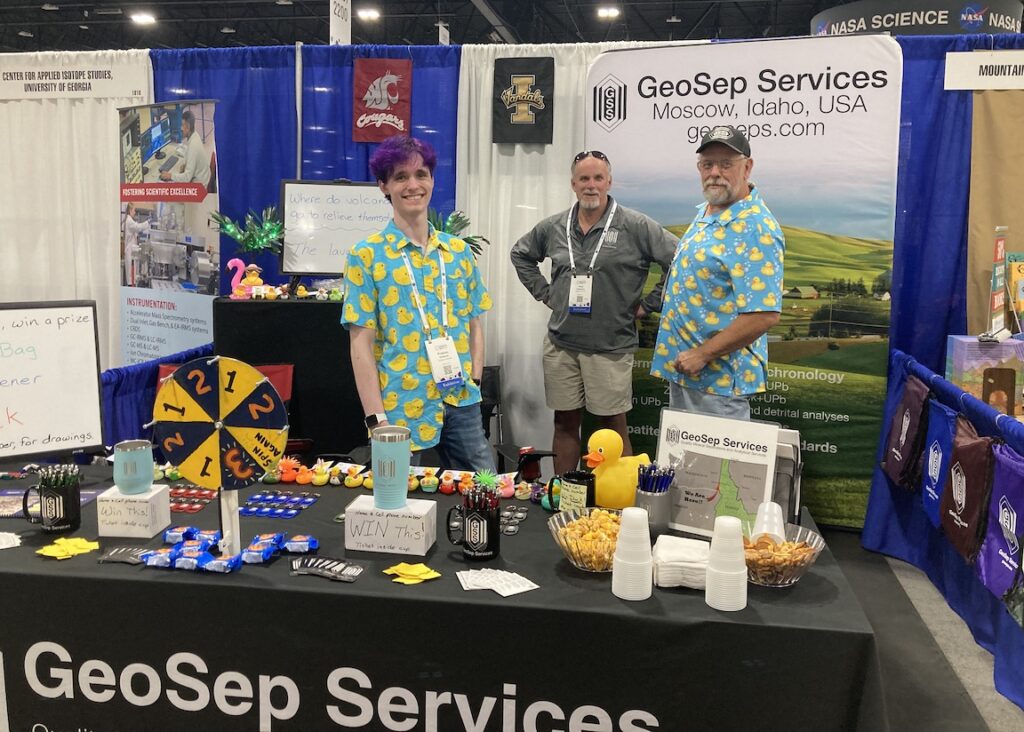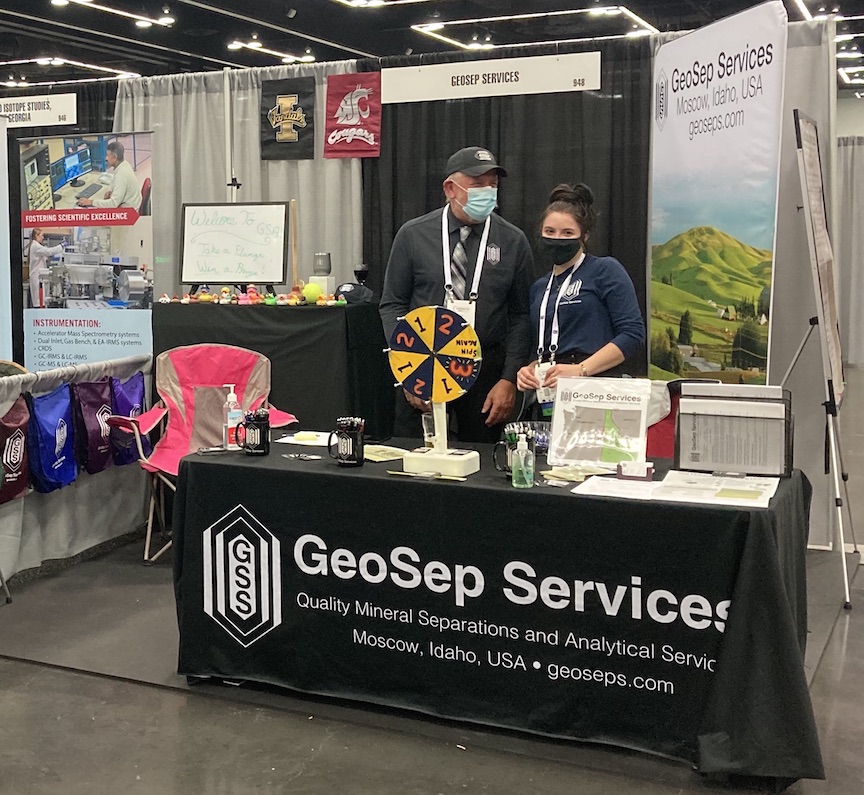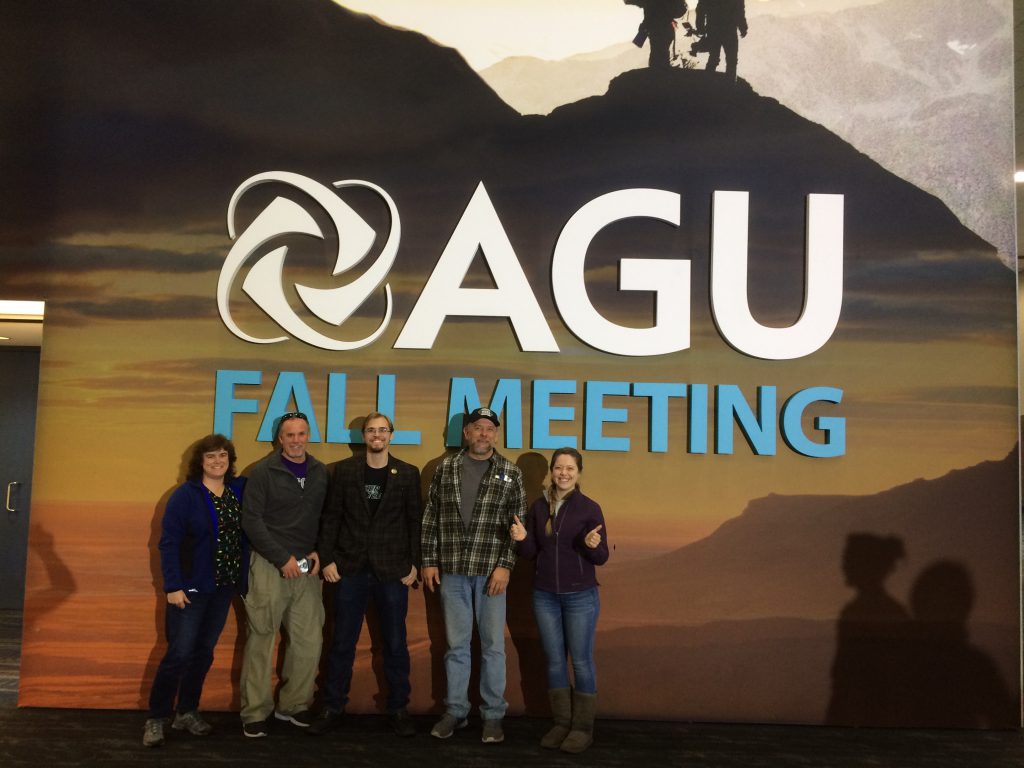GSS is celebrating 10 years of operation in 2025!!
In February the GSS Crew celebrated triple milestones: ten years of operation as of January, Jim McMillan being with GSS for 10 years - more than 9 years as our Facility Manager, and reaching 800 GSS projects! Hard to imagine it has already been 10 years and many thousands of analyses! How the time flies when you're having fun!! Thanks to all our clients and colleagues!
Really appreciate the fantastic work Jim and the Crew do for GSS!
We're glad Jim deserted the tractors and combines to stick with us.

Paul O’Sullivan, Ph.D., Principal Manager and Chief Scientist
Andrea O'Sullivan, Administrative Manager
Jim McMillan, Facility Manager
Arron, Geological Technician
Bailie, Lab Technician
Preston, Lab Assistant/Technician
Technical Personnel
Our GSS-trained technical personnel have a combined 13+ years of experience with mineral separation procedures. GSS has processed thousands of samples. Our technical personnel follow defined Standard Operating Procedures (SOPs) when carrying out the various stages of sample processing. We are all dedicated to providing the highest quality mineral separations and pay close attention to detail through every step of the process.

Preston, Paul, and Jim at 2022 GSA Connects meeting in Denver, CO

Jim and Rowan at 2021 GSA Connects meeting in Portland, WA

Andrea, Paul, Charlie, Jim, and Victoria at AGU 2017.
GeoSep Services Facility Analytical Philosophy
Here at GeoSep Services (GSS) we pride ourselves on efficiency—going from rocks to separates, to data, to final report, all in a time frame that fits industry, researcher, government agency, and student needs. Our scientific/chronology personnel are experts across the geo-thermochronology spectrum and are always open to collaborations and technical inquires. GSS Principal Manager Paul O’Sullivan is an international resource on the fission track technique and has played a strong role in technique development-applications demonstrated by co-authorship on hundreds of peer-reviewed publications.
Every analytical facility must balance education, efficiency, safety, fiscal, and client goals. Almost every mass spectrometer lab has designated lab managers and technicians. The technical training required to operate and maintain a mass spectrometer usually involves an instrument-focused PhD/Post-Doc, and the costs to replace broken parts or deal with unnecessary down-time can cripple a lab. Labs often have a mass spectrometer maintenance contract, given the complicated and manufacture propriety aspects of the internal electronics of modern instrumentation. In any lab, only a limited number of trained staff/students perform periodic tasks such as changing out filaments/replacing electron multipliers/valves/pumps, degassing getters and calibrations, and daily operational tasks such as setting up degassing schedules/dissolutions and loading sampling trays onto these delicate high vacuum extraction lines. There are also safety and training concerns when working with irradiated materials, chemicals, and certain laser systems. Hence, mass spectrometers are essentially “black boxes” to ~99% of all “end-data users.”
Most academic facilities provide education and training for data collection tasks within the confines of what is reasonable for non-technical experts to perform. Such tasks could include selecting appropriate zircon grains and spot locations for U-Pb analysis; overseeing the LA-ICP-MS semi-automated data collection; or picking, characterizing, measuring, and packing apatite and zircon grains for (U-Th)/He dating. Certain GSS personnel are trained to use the LA-ICP-MS for data collection. They follow a GSS-developed standard operating procedure (SOP) with detailed instructions, and they work closely with facility technical staff as needed.
GSS offers an intensive student training program, where students learn how to prepare their own mineral separates under supervision of our staff. Some visitors to our facility have also participated in the selection and ablation of zircons for U-Pb ICP-MS analysis. GSS does not normally take on students for fission track analysis because it is a technique requiring years of experience to become proficient. GSS may make an exception for postgraduate students with sufficient education and experience.
The fiscal burdens of keeping a geochronology facility operational are immense; hence almost every academic lab takes on some contract work to keep the lights on. Unlike academic facilities, GSS is responsible for covering all aspects of all facility costs, including materials and supplies, employee pay and benefits, insurance, rent, and utilities.
Contract work, whether at an academic lab or at GSS, usually involves a client sending in a sample or mineral separates, and getting spreadsheets of isotopic, track length, etc. information. Some labs provide preliminary date calculations and perhaps some figures for publication, while others find this is too prescriptive and leave it to the client to determine the sample date calculation method for their scientific objective. We at GSS feel that geoscientists need access to geochronologists as much as geochronology data and we are available for project-chronology consultations. We provide preliminary sample dates with our analyses but expect scientist clients to make final age calls based on their knowledge of the geologic information relating to the sample(s). At GSS we look forward to serving individual data-educational goals, industry needs, and community objectives. Please contact us for any analytical, educational, or technical needs/resources.

